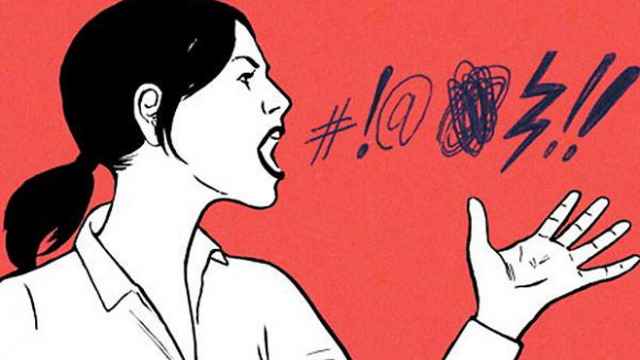Вы́годно: profitable, advantageous, good
Выгодно is a simple word in Russian. Everyone knows what it means — profitable, either literally or figuratively. Right?
Right. But — there's always a "but" — the tricky bit is choosing the right word in English that captures exactly what variety of "profitable" выгодно means in each context.
Let's start with the money-making aspect of выгодно. Sometimes it refers simply to some kind of activity that produces income: Строить выгодно в самом центре города. (You can make money if you build right in the city center.) But most often it is used in the comparative form — either выгоднее or более выгодно (more profitable) — to mean doing something that is especially financially advantageous. Обсуждать перспективы высоких технологий бессмысленно, пока выгоднее вкладывать в нефть. (There's no point discussing the prospects of high tech as long as you can make more money by investing in oil.) В развитом обществе жить с продаж интеллектуального продукта более выгодно, чем жить с продаж сырья. (In a developed society, living off the sale of intellectual property is more profitable than living off the sale of raw materials.)
And then выгодно can refer to any activity that is beneficial or useful. Нам выгодно поддержать это начинание. (It's in our interests to support this undertaking.) Sometimes the benefit is specific to a particular time and place: Коммунистом быть стыдно, но выгодно. (It might be shameful to be a Communist, but it's expedient.) Or to a particular mentality: Он выгодно женат, с точки зрения прибавки популярности. (He made a good marriage, from the point of view of raising his popularity.) Or to human nature in general: Нормальные люди выставляют напоказ то, что им выгодно выставлять. (Normal people show off what's in their interests to show off.)
And there's another shade of meaning with выгодно, which really just means "generally good": Выгодно отличаться от своих товарищей. (It's good to stand out from your mates.) Бывает выгодно выплеснуть всё наружу. (Sometimes it's good to get it all out.)
Sometimes the comparative form выгоднее just means better: Несомненным достоинством словаря, выгодно отличающим его от большинства ранее изданных словарей, является то, что почти каждая словарная статья сопровождается обширным иллюстративным материалом. (Without a doubt, one aspect of the dictionary that compares favorably to other previously published dictionaries is that almost every entry is lavishly illustrated.)
And finally, there is the выгодно phrase that I have come to loathe: Кому выгодно? (Who stands to gain?) Dictionaries tell you that this comes from the Latin — either cui prodestor or cui bono — and is attributed to a lawyer with the ludicrously long name of Lucius Cassius Longinus Ravilla. The notion behind the phrase is simple: In the investigation of a crime, ask "Who gains from it?" Как правило, этот путь рассуждений ведёт к обнаружению самого преступника и (или) того, кто за ним стоит. (As a rule, this leads to determining either who committed the crime and/or who was behind it.)
Any time something happens on your block or in the world, everyone asks some variety of the question: Зачем это? (What was the point of it?) Кому это надо? (Who needs this?) Для кого это выгодно? (Who stands to gain from it?)
All good questions. But Lucius meant them to be the start of the investigation, followed by the gathering of facts and evidence. These days in Russia кому выгодно is often the end of the investigation. Кому выгодно кричать "кому выгодно?" (Who stands to gain from screaming "Who stands to gain?")
Answer: Apparently everyone.
Michele A. Berdy, a Moscow-based translator and interpreter, is author of "The Russian Word's Worth" (Glas), a collection of her columns.
A Message from The Moscow Times:
Dear readers,
We are facing unprecedented challenges. Russia's Prosecutor General's Office has designated The Moscow Times as an "undesirable" organization, criminalizing our work and putting our staff at risk of prosecution. This follows our earlier unjust labeling as a "foreign agent."
These actions are direct attempts to silence independent journalism in Russia. The authorities claim our work "discredits the decisions of the Russian leadership." We see things differently: we strive to provide accurate, unbiased reporting on Russia.
We, the journalists of The Moscow Times, refuse to be silenced. But to continue our work, we need your help.
Your support, no matter how small, makes a world of difference. If you can, please support us monthly starting from just $2. It's quick to set up, and every contribution makes a significant impact.
By supporting The Moscow Times, you're defending open, independent journalism in the face of repression. Thank you for standing with us.
Remind me later.








